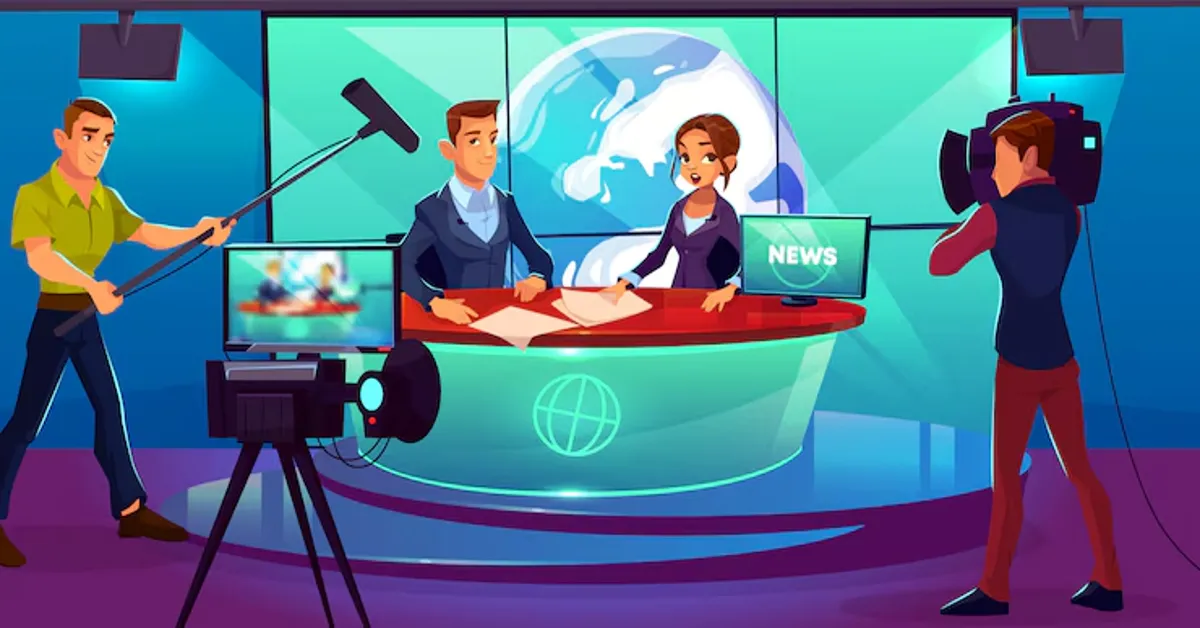If you’ve searched for HydraHD, you’re likely looking for a way to access movies, television shows, or live broadcasts without paying subscription fees. To address the query directly: HydraHD is a free content streaming website that provides access to popular movies and TV shows by embedding or linking to externally hosted media, often without authorization. It’s part of a growing cluster of online platforms that challenge traditional entertainment distribution, drawing attention for its convenience—and scrutiny for its legal ambiguity.
This article explores HydraHD in full: its interface, operation, content offerings, legal context, user risks, and what its growing user base says about shifting media consumption habits.
What is HydraHD?
HydraHD is a web-based streaming portal that allows users to watch movies and television shows without signing up, logging in, or paying for a subscription. It’s designed to feel like a modern entertainment hub—like Netflix or Disney+—but it operates outside the bounds of licensed content distribution.
Key features of the HydraHD platform include:
- A searchable content database
- Categorized film and television libraries
- A clean, user-friendly interface with fast loading
- Embedded video players sourced from external sites
- No visible paywall or membership requirement
HydraHD is not a brand-owned service or a sanctioned distributor. Rather, it is a content aggregator—one that sources media through unofficial channels.
Why Is HydraHD Popular?
HydraHD’s rise in popularity reflects growing consumer frustration with the fragmentation and pricing of modern streaming services. Viewers who once paid for one platform now find themselves needing five or six to access the content they want.
HydraHD appeals because:
- It’s free: No subscription fees or registration
- It’s fast: No long buffering or app requirements
- It’s wide-reaching: Offers newly released films, TV series, and international content
- It’s simple: No complex interface or ad clutter (in some cases)
For many users, HydraHD fills a convenience void left by increasingly siloed entertainment ecosystems.
How HydraHD Works Behind the Scenes
HydraHD doesn’t host video files itself. Instead, it:
- Indexes links to externally hosted video content
- Embeds streaming players into its site structure
- Uses metadata tagging to categorize and sort content
- Employs scripts and caching mechanisms to make access faster
In this sense, it operates like a digital media indexer or “middleman,” enabling users to stream content that resides elsewhere—usually on third-party cloud servers or offshore-hosted platforms.
This technical model gives it a thin layer of separation from the content itself, but not enough to avoid legal risk, especially under modern copyright laws.
Content Offerings on HydraHD
HydraHD’s catalog is one of its major selling points. While the actual library varies depending on mirror domains and takedowns, it often includes:
- New releases: Films still in theaters or recently launched on major platforms
- TV shows: Episodes from Netflix, HBO, Amazon Prime, and broadcast networks
- Classic content: Older series and films not easily available elsewhere
- Global programming: Bollywood, Korean dramas, European television, anime
- Live streams: In some instances, live sports or event broadcasts
This vast selection is one of HydraHD’s biggest draws. It’s a one-stop-shop—unmatched by legal services restricted by licensing geography or tiered subscriptions.
Is HydraHD Legal?
The short answer is no. While the website itself may attempt to sidestep direct responsibility by not hosting content, it enables access to pirated or unauthorized material, which violates:
- U.S. copyright law (e.g., DMCA provisions)
- European Union’s Copyright Directive
- International copyright treaties like the Berne Convention
From a legal standpoint, it doesn’t matter whether a user downloads or merely streams—the act of viewing pirated content can still constitute infringement in many jurisdictions.
HydraHD, like other gray-market platforms, often faces takedown requests, domain suspensions, and search engine blacklisting.
User Risks Associated with HydraHD
Beyond legal concerns, using HydraHD presents several potential risks for the average user.
1. Malware and Adware
Although HydraHD tries to maintain a cleaner interface than other streaming sites, its reliance on third-party video hosts means users are exposed to:
- Pop-up ads
- Malicious redirections
- Fake software update prompts
- Tracking cookies
Without strong cybersecurity protections, users could compromise their device or personal data.
2. ISP Monitoring and Warnings
In some countries, Internet Service Providers (ISPs) track traffic to known pirated streaming domains. Users may receive:
- Warning letters
- Throttled connection speeds
- Legal notices in more aggressive copyright enforcement areas
A VPN (Virtual Private Network) may reduce visibility, but it doesn’t offer full immunity.
3. Privacy Risks
HydraHD doesn’t require accounts, but some mirror sites prompt users for information or push pop-ups designed to collect:
- Email addresses
- Browser history
- Location data
- Device IDs
This kind of covert data harvesting is common on pirated platforms with little user oversight.
Why Sites Like HydraHD Persist
Despite the risks and legal issues, HydraHD and similar sites thrive because they speak to deeper market problems:
- Streaming fatigue: People are overwhelmed by managing multiple paid services
- Geo-blocking: Content is often region-locked, limiting global access
- Cost barriers: High-quality entertainment is becoming a luxury
- Poor UX: Legal platforms often lag behind in UI simplicity or playback quality
HydraHD offers a frictionless alternative, which is why it continues to draw millions of global users, especially younger audiences who grew up with open internet access.
How Authorities Respond to HydraHD
Efforts to shut down platforms like HydraHD follow several strategies:
- Domain seizures: Legal agencies may suspend website domains via ICANN
- DMCA notices: Search engines are notified to delist specific URLs
- Legal prosecution: In rare cases, site operators are pursued through court
- Content tracing: Watermarked copies of movies may be traced back to leak sources
Yet HydraHD and similar sites remain resilient. They rotate through multiple domains, change code bases, operate offshore, and rebrand constantly, staying one step ahead of enforcement.
HydraHD vs. Legal Streaming Services
| Feature | HydraHD | Netflix | Hulu | Tubi (Free & Legal) |
|---|---|---|---|---|
| Cost | Free | Paid subscription | Paid + Ads | Free with ads |
| Legal Compliance | No | Yes | Yes | Yes |
| Ads | Pop-ups/Redirects | None | Limited | Yes |
| Account Needed | No | Yes | Yes | Optional |
| Content Library | Aggregated from many platforms | Original + Licensed | Licensed | Licensed only |
| Risk Level | High (Legal & Security) | None | None | None |
This table shows that HydraHD wins on access but loses in terms of safety, legality, and ethical content use.
The Ethics of Free Streaming
Ethical arguments about HydraHD are nuanced. Supporters argue:
- Access to art and culture should be a universal right, not a paid privilege
- Many users would happily pay if content was affordable and accessible
- Piracy platforms help preserve rare or unavailable content from being lost
Critics argue:
- Content creators deserve to be paid
- Piracy undermines indie producers who rely on every view
- It contributes to a culture that devalues digital labor
The ethics aren’t black-and-white. They reflect a deeper disconnect between digital supply models and public demand.
How to Stay Safe While Streaming
For those still choosing to access HydraHD, digital self-protection is key:
- Use a reliable ad blocker
- Install updated antivirus software
- Access through a secure VPN
- Never input personal data or payment info
- Close suspicious tabs or redirects immediately
- Avoid downloading anything from the site
This won’t eliminate all risks, but it helps reduce exposure significantly.
Alternatives to HydraHD
If you’re seeking free or low-cost legal alternatives, consider:
- Tubi: Free with ads, solid library of TV and movies
- Pluto TV: Live TV channels and on-demand shows
- Peacock Free: NBC’s ad-supported tier
- Kanopy: Available via libraries and universities
- Public Domain Torrents: Classic, legal downloads
These platforms provide legal peace of mind, though they may lack the latest blockbusters.
What HydraHD Reveals About Streaming Culture
HydraHD isn’t just a site—it’s a mirror. It reflects:
- The public’s hunger for convenience
- Frustration with content silos
- The widening gap between what’s available and what’s accessible
- The blurred lines between content ownership and digital rights
HydraHD is a symptom of systemic streaming fragmentation. Its popularity is a signal that something in the media ecosystem is broken—and users are patching it themselves.
Final Thoughts: A Platform Between Demand and Disruption
HydraHD exists in the cracks of the digital entertainment industry—too convenient to ignore, too problematic to endorse, too widespread to stop easily. It is both a tool of rebellion and necessity, rising from a world where content is abundant but access is inconsistent.
While it raises real concerns around legality and creator compensation, it also asks: what if access models were designed with real user behavior in mind? Until the industry adapts, platforms like HydraHD will remain a staple for millions—informal, unofficial, and undeniably influential.
1. What is HydraHD?
HydraHD is a free online streaming website that allows users to watch movies and TV shows without registering or paying. It aggregates content from external sources and embeds it for public viewing—often without legal distribution rights.
2. Is HydraHD legal to use?
No, HydraHD operates outside legal content licensing frameworks. While it doesn’t directly host copyrighted material, it facilitates access to pirated content, which is illegal in most countries and can carry legal or ISP-related consequences.
3. What kind of content is available on HydraHD?
HydraHD typically offers a wide range of media, including new movie releases, popular TV shows, global programming, and sometimes even live events. Much of this content is sourced unofficially from other platforms.
4. Is HydraHD safe to use?
There are security risks associated with using HydraHD. These include potential malware, tracking scripts, pop-up ads, and phishing attempts from embedded video hosts. Users should take precautions like using ad blockers, VPNs, and antivirus protection.
5. Are there legal alternatives to HydraHD?
Yes, several legal and free streaming alternatives exist, such as Tubi, Pluto TV, Peacock Free, and Kanopy. These services are ad-supported and offer licensed content, providing a safer and lawful viewing experience.











